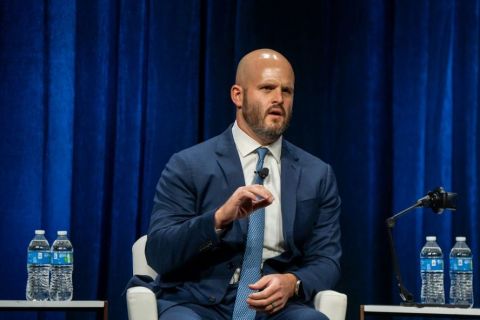E&Ps doing business overseas face a variety of challenges. Slogging through the regulatory process of foreign governments can be laborious for companies that are unfamiliar with the region. The process always takes excessive time, a hindrance for a smaller company needing to put its capital to work quickly. Access to service and supply resources may be limited and operational costs often prove higher than anticipated. And many governments have a funny way about changing the rules midstream, typically not in favor of the economic models used upon acquisition. Mostly, politics are the problem. You can read my in-depth look at seven companies that rolled up a substantial portion of their international assets to reinvest in North America in the May 2008 issue of Oil and Gas Investor ("M&A Homecoming"). (Don't subscribe? To do so or to order a copy of the article or the issue only, write to ahunt@hartenergy.com.) Teton Energy, for one, sold its productive and growing position in Russia---literally every ounce of the company's production---and reinvested it all back in the U.S. Says president Karl Arleth , “If we had been able to take in the gain in oil prices that has happened in the last five to six years without having the government progressively tax it away, it would have been just fine. But once that upside was taken away, it took away our incentive to be there.” Not to mention the Russian government's jailing of former Russian-producer Yukos CEO Mikhail Khodorkovsky and the gangster environment that exists in Russian big business. Before deciding to reinvest the dollars back into the U.S., Teton scoured the globe to invest its exploration dollars, but found the landscape precarious. “We sensed resource nationalism was emerging everywhere we looked internationally,” Arleth says. Another, Pioneer Natural Resources, faced political challenges in Argentina that stripped away their upside. CEO Scott Sheffield says governments are attempting to “collect the rent” in an environment of rising commodity prices. "Several countries around the world are obviously taking it away from the oil and gas companies. You can raise gasoline prices. You can tax or raise royalties of oil and gas companies. It all ends up going back to the consumer eventually," he says. EnCana's Randy Eresman, once active in Ecuador, complained of the government "constantly raising and changing tax regimes." Swift Energy, which entered New Zealand largely because of its friendly government, is in the process of selling all of its assets there because... the government pulled the rug out from under them. Swift CEO Bruce Vincent says, "Their policies toward energy development in our view were not favorable toward the exploration and production side of the business." The looming trend has cast second thoughts in exploration-minded E&Ps looking to invest capital in potentially unfriendly governments, with obvious examples being Venezuela and Russia. But it's predominate most everywhere worldwide. Even in the midst of an election year debate in the U.S. that promises policies of "windfall profits taxes" from U.S. producers, the landscape is still much friendlier here than there. The IPAA recently published a survey of international activity statistics for independent producers. To view the results, click here: IPAA International Activity Survey Competition on the international front has increased significantly in the last decade too. Asset deal values have risen for the sixth straight year to a total of $89 billion globally, up 40% from just one year previous, according to an annual M&A review by energy-research firm John S. Herold Inc. and M&A advisor Harrison Lovegrove & Co., subsidiaries of IHS Inc. and Standard Chartered Bank, respectively. For more on this study, click here: Herold-Lovegrove M&A Study Steve Toon, Editor, A&D Watch; Contributing Editor, Oil and Gas Investor; www.OilandGasInvestor.com; stoon@hartenergy.com
Recommended Reading
From Restructuring to Reinvention, Weatherford Upbeat on Upcycle
2024-02-11 - Weatherford CEO Girish Saligram charts course for growth as the company looks to enter the third year of what appears to be a long upcycle.
TechnipFMC Eyes $30B in Subsea Orders by 2025
2024-02-23 - TechnipFMC is capitalizing on an industry shift in spending to offshore projects from land projects.
NOV's AI, Edge Offerings Find Traction—Despite Crowded Field
2024-02-02 - NOV’s CEO Clay Williams is bullish on the company’s digital future, highlighting value-driven adoption of tech by customers.
Patterson-UTI Braces for Activity ‘Pause’ After E&P Consolidations
2024-02-19 - Patterson-UTI saw net income rebound from 2022 and CEO Andy Hendricks says the company is well positioned following a wave of E&P consolidations that may slow activity.
ProPetro Reports Material Weakness in Financial Reporting Controls
2024-03-14 - ProPetro identified a material weakness in internal controls over financial reporting, the oilfield services firm said in a filing.





